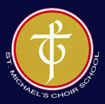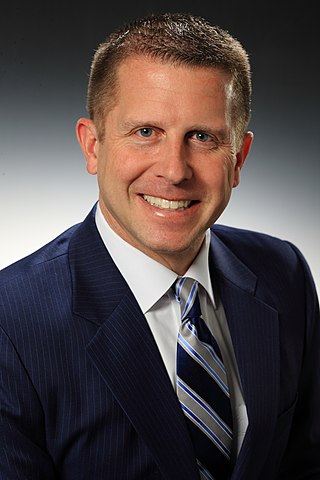
Lieutenant-Colonel John Keiller MacKay was a Canadian soldier,lawyer and jurist. MacKay served as the 19th lieutenant governor of Ontario from 1957 to 1963.

Osgoode Hall Law School,commonly shortened to Osgoode,is the law school of York University in Toronto,Ontario,Canada. It is home to the Law Commission of Ontario,the Journal of Law and Social Policy,and the Osgoode Hall Law Journal. A variety of LL.M. and Ph.D. degrees in law are available.
Garth Drabinsky is a Canadian film and theatrical producer and entrepreneur. In 2009,he was convicted and sentenced to prison for fraud and forgery. The sentence was reduced from 7 to 5 years in prison,on appeal to the Ontario Court of Appeal,and the Supreme Court of Canada declined to hear a subsequent appeal. In April 2023,a judge dismissed Drabinsky’s defamation lawsuit against American Actor’s Equity for placing him on their ‘Do Not Work’list,and in July 2024 the 2nd Circuit Court of Appeals affirmed this dismissal,along with his claim that the union's conduct violated antitrust law. Drabinsky has attempted 3 comebacks all resulting in failure and millions of investor dollars being lost.
In contract law,a choice of law clause or proper law clause is a term of a contract in which the parties specify that any dispute arising under the contract shall be determined in accordance with the law of a particular jurisdiction. An example is "This Agreement shall be governed by,and construed in accordance with,the law of the State of New York."

St. Michael's Choir School is a semi-private Catholic choir school for boys from grades 3-12 in Toronto,Ontario,Canada. Overseen by the Roman Catholic Archdiocese of Toronto,the school provides a private music education in joint operation with the Toronto Catholic District School Board,which administers all other academic subjects,athletics programs,and extracurricular activities. The school is affiliated with the Pontifical Institute of Sacred Music and is a member of the International Boys' Schools Coalition.

Charles Leonard Dubin was a Canadian lawyer and former Chief Justice of Ontario. He led the Dubin inquiry into the use of steroids by athletes.
The Committee on Monetary and Economic Reform (COMER) is an economics-oriented publishing and education centre based in Toronto,Ontario,Canada.
Rocco Galati is an Italian-born Canadian lawyer who specializes in cases involving constitutional law. He is the founder and executive director of the Constitutional Rights Centre.

Chippewas of Sarnia Band v Canada (AG),2000 CanLII 16991,51 OR (3d) 641;195 DLR (4th) 135 was a decision of the Court of Appeal for Ontario concerning aboriginal title in Canada.

AndréMarin is a lawyer who served as Ontario ombudsman from 2005 to 2015.
David M. Paciocco is a justice of the Court of Appeal for Ontario in Toronto,Ontario. Paciocco has authored several books on criminal law and is considered one of Canada's foremost experts on the law of evidence.

Edward Sapiano was a Canadian defence lawyer,based in Toronto,Ontario,notable for his role in many high-profile criminal cases. He initiated Canada's largest criminal investigation of police,resulting in the arrest and prosecution of several Toronto police officers and was also involved in the so-called Toronto 18 terrorism trial. Edward Sapiano is also noted for demanding immediate DNA testing of his client shortly following the 1996 arrest of the suspected "North York serial rapist",leading to his client Jeremy Foster's full vindication,despite a false confession to the crime. In his quest to get illegal guns off the street,Sapiano also created the only lawyer-operated gun amnesty program available in North America,Piece Options. He is also known for starting a database of rulings and judgements to track alleged misconduct among Toronto-area officers which was then retrievable for cross-examinations in other cases by other lawyers. Edward Sapiano,after putting his practice on hold for two and a half years due to kidney failure,returned to court in 2017 for the Andrea White murder trial. Edward died on March 21,2020,from complications of kidney disease and was cited to be the first lawyer in Canada to practise while undergoing 10 hours of daily dialysis. He was regularly featured by media outlets,including The Globe and Mail,CBC,and the New York Times commenting on criminal law issues.
The Inquiry into Pediatric Forensic Pathology in Ontario,commonly known as the Goudge Inquiry,was created to address serious concerns over the way criminally suspicious deaths involving children are handled by the Province of Ontario in Canada. The inquiry was primarily the result of evidence that arose in regards to discredited pathologist Charles Smith.
Michael Moldaver is a former Canadian judge. He was a puisne justice on the Supreme Court of Canada from his 2011 appointment by former Prime Minister Stephen Harper until his retirement in 2022. Before his elevation to the nation's top court,he served as a judge at the Ontario Superior Court of Justice and the Court of Appeal for Ontario for over 20 years. A former criminal lawyer,Moldaver is considered an expert in both Canadian criminal law and the Canadian Charter of Rights and Freedoms.

The death of Sammy Yatim occurred early in the morning of July 27,2013,in Toronto,Ontario,Canada. Yatim,an 18-year-old Toronto male armed with a switchblade knife,was shot at nine times,and was hit by eight of the shots fired by 30-year-old Toronto Police Service (TPS) officer James Forcillo. After being shot,while lying on the floor of the streetcar he was tasered. He later died from the injuries. The incident occurred after Yatim,brandishing a 12 cm (4.7 in) switchblade knife in a Toronto streetcar,advanced on a passenger,threatened other passengers,and exposed himself. The confrontation between Yatim and the police was recorded and footage of it was released publicly,prompting strong reactions across Canada.
The Huronia Regional Centre was an institution for developmentally disabled people operated by the government of Ontario,Canada between 1876 and 2009. After the closing of the school,and prompted by a class-action lawsuit,the government apologized for decades of neglectful abuse of the facility's residents and paid a settlement to surviving victims.

The Making Ontario Open for Business Act is a law in the province of Ontario that froze the minimum wage in the province and removing a number of protections of workers' rights.

Toronto (City) v Ontario,2021 SCC 34,is a landmark decision of the Supreme Court of Canada on freedom of expression and unwritten constitutional principles. By a 5–4 majority,the court held that the Government of Ontario's decision to reduce the size of the Toronto City Council in the middle of 2018 municipal election campaign did not violate either section 2(b) of the Canadian Charter of Rights and Freedoms or the unwritten principle of democracy. The court further held that unwritten constitutional principles could not serve as an independent basis to invalidate legislation.

R v Golden,2001 SCC 83 is a landmark decision of the Supreme Court of Canada on limitations to the power of police officers to perform strip searches. The Court held that the common law rule allowing police officers to perform warrantless searches incident to arrest must be limited in relation to strip searches,citing their heightened intrusiveness and impact on the Charter protected privacy interests of the accused.
Caryma Fayez Sa'd is a Canadian lawyer specializing in landlord-tenant law and cannabis law. She is also known for documenting events at anti-COVID-19-lockdown protests in Canada and other protests.










